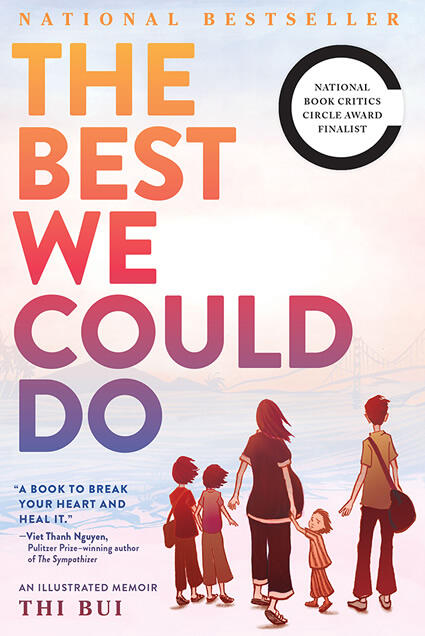
2023-2024 Feather River College - Book in Common:
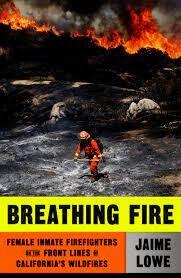
Shawna was overcome by the claustrophobia, the heat, the smoke, the fire, all just down the canyon and up the ravine. She was feeling the adrenaline, but also the terror of doing something for the first time. She knew how to run with a backpack; they had trained her physically. But that’s not training for flames. That’s not live fire.
California’s fire season gets hotter, longer, and more extreme every year ― fire season is now year-round. Of the thousands of firefighters who battle California’s blazes every year, roughly 30 percent of the on-the-ground wildland crews are inmates earning a dollar an hour. Approximately 200 of those firefighters are women serving on all-female crews.
In Breathing Fire, Jaime Lowe expands on her revelatory work for The New York Times Magazine. She has spent years getting to know dozens of women who have participated in the fire camp program and spoken to captains, family and friends, correctional officers, and camp commanders. The result is a rare, illuminating look at how the fire camps actually operate ― a story that encompasses California’s underlying catastrophes of climate change, economic disparity, and historical injustice, but also draws on deeply personal histories, relationships, desires, frustrations, and the emotional and physical intensity of firefighting.
Lowe’s reporting is a groundbreaking investigation of the prison system, and an intimate portrayal of the women of California’s Correctional Camps who put their lives on the line, while imprisoned, to save a state in peril.
Purpose of Book in Common
Many colleges and universities adopt a common reading for the academic year. The purpose of a common reading is to create campus and community wide intellectual discussion about a significant current topic, social issue, or literary work. By presenting various opportunities to engage with the book, students, staff, faculty, and community can develop an understanding of the book within different contexts and points-of-view. Books, as repositories of knowledge, records of experience, and explorations of personal and cultural themes, foster deep and complex understanding and provide the basis for a healthy and vibrant society. The Book in Common is one way that FRC dedicates itself to giving students the tools to engage, comprehend, and shape the world around them.
2022-2023
“This memoir feels not just created but also deeply lived."—The Washington Post
Before she began to work on The Best We Could Do in 2005, Thi Bui had never drawn a comic in her life. Twelve years later, the debut graphic memoir would be released to widespread acclaim from critics and literary heavyweights alike. An American Book Award winner, a National Book Critics Circle finalist in autobiography, and an Eisner Award finalist in reality-based comics, Bui’s memoir traces her family’s daring escape after the fall of South Việt Nam in the 1970s and their effort to build new lives for themselves in America. Bui documents parental sacrifice, excavates family histories, and grapples with the inherited struggles of displacement and diaspora. “A stunning work of reconstructed family and world history” (Booklist Online). “Narratively intricate, intellectually fastidious, and visually stunning” (Vulture). Writes Viet Thanh Nguyen, Pulitzer Prize winner and board member: “A book to break your heart and heal it.”
Thi Bui was born in Việt Nam three months before the end of the American War, and came to the United States in 1978 as part of the “boat people” wave of refugees from Southeast Asia. Her debut graphic memoir, The Best We Could Do (Abrams ComicArts, 2017), has been selected as UCLA’s Common Book for 2017, a National Book Critics Circle finalist in autobiography, an Eisner Award finalist in Reality Based Comics, and made several Best of 2017 book lists, including Bill Gates’s top five picks. Bui is also the Caldecott Honor-winning illustrator of A Different Pond, a picture book by the poet Bao Phi (Capstone, 2017). Her short comics can be found online at The Nib, Reveal News, PEN America, and BOOM California. She is currently researching and drawing a work of graphic nonfiction about how Asian Americans are impacted by incarceration and deportation, to be published by One World, Random House. Bui taught high school in New York City and was a founding teacher of Oakland International High School, the first public high school in California for recent immigrants and English learners. Since 2015, she has been a faculty member of the MFA in Comics program at the California College of the Arts. Thi Bui lives in the Bay Area.
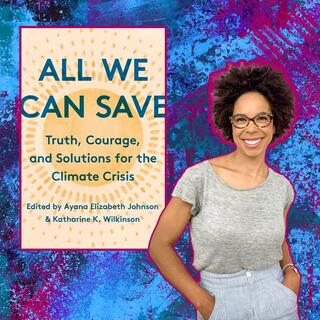
2020-2021
All We Can Save illuminates the expertise and insights of dozens of diverse women leading on climate in the United States—scientists, journalists, farmers, lawyers, teachers, activists, innovators, wonks, and designers, across generations, geographies, and race—and aims to advance a more representative, nuanced, and solution-oriented public conversation on the climate crisis. These women offer a spectrum of ideas and insights for how we can rapidly, radically reshape society.
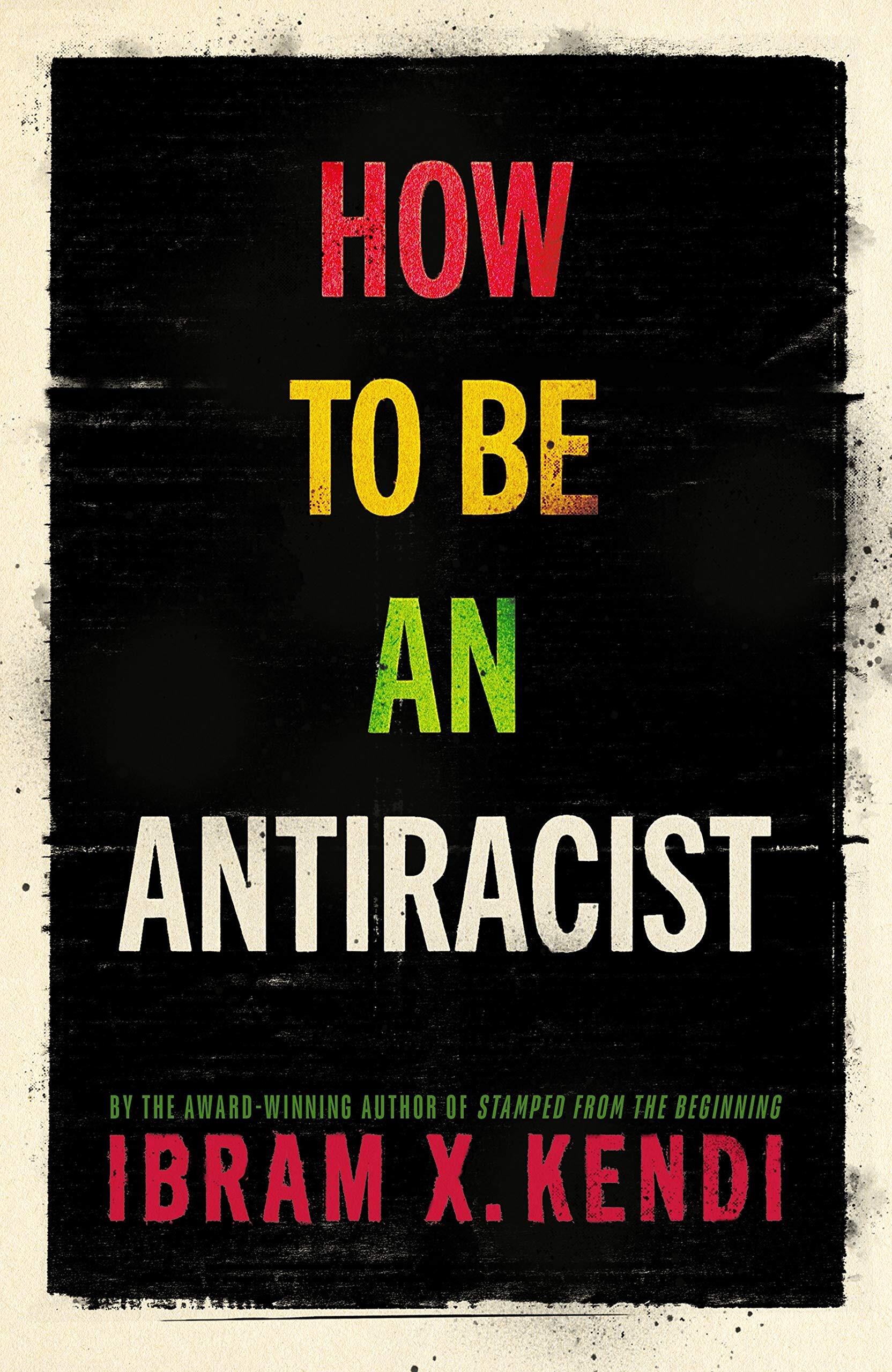
2020-2021
Ibram X. Kendi's book How to Be an Antiracist takes a close look at what could be called structural and social racism. Instead of wanting to lay blame or accuse individuals of racist views or behavior, Kendi is more interested in showing how our society has incorporated bias and prejudice into many of our ideas and behaviors which shape and support our society. He uses a combination of personal stories from his life as well as journalistic reporting and scholarly analysis to demonstrate his points.
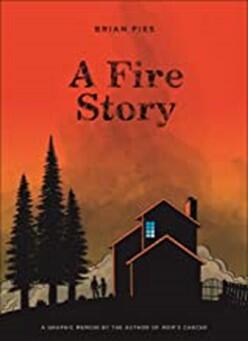
2019-2020
Written by northern California author and graphic artist Brian Fies, A Fire Story tells about Fies’ experience with the Tubbs Fire in Santa Rosa in 2017. The author lost everything in the fire except his ability to draw and tell stories. A graphic memoir, Fies compellingly relates the events and their aftermath and recovery. Living with wildfire is a reality in California, and this book resonated with our community. Brian Fies visited Feather River College for two days in September 2019 to lecture, teach, and speak about his story, about writing and cartooning, and about the realities of wildfire.
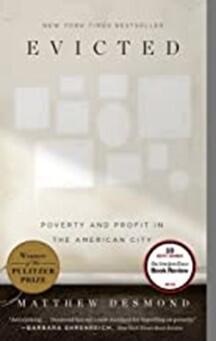
2018-2019
Written by sociologist Matthew Desmond, Evicted explores the circumstances and difficulties of paying rent, owning land, and trying to get by in difficult circumstances. Thought the research was done in Milwaukee, Desmond brings out the common challenges and circumstances that many Americans face.

2017-2018
The Devil’ Highway tells the true story of a group of Latin American immigrants who cross the U.S. Border illegally guided by unscrupulous coyotes. Lost and suffering from thirst and heat stroke, many of the people die. Luis Alberto Urrea, a journalist and a novelist, goes into great detail offering multiple stories, multiple points of view, and many thoughtful themes.

2016-2017
Written by McArthur award winning lawyer Bryan Stevenson, Just Mercy is a memoir about his career representing death-row inmates and those wrongfully convicted of crimes in the Deep South. The various stories and fates of people involved in the justice system offers many difficult questions about society, justice, and mercy.
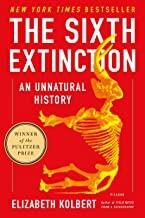
2015-2016
Journalist Elizabeth Kolbert explores the meaning and consequences of the Anthropocene era—the epoch of earth’s history dominated by humankind. There had been five major extinctions of substantial portions of life in earth. The question of human influence of the environment and issues climate change are explored through a combination of science and journalism.
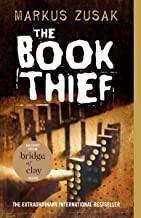
2014-2015
The Book Thief became an international best-seller after publication in 2005. The novel, narrated by Death, tells the story of a young girl, Liesel, who lives in Germany during World War II. The unusual viewpoint allows readers to think about personal values within morally ambiguous situations.
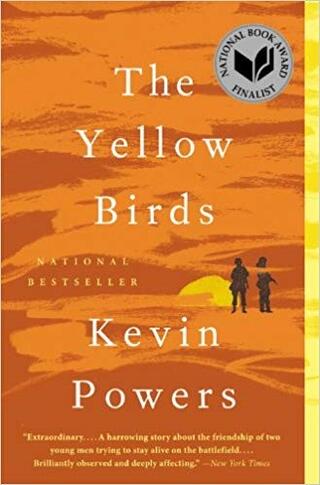
2013-2014
The Yellow Birds is a novel that uses a symbolic and metaphorical structure to tell the story of one U.S. soldier’s experience in the way in Iraq. The story follows Pvt. John Bartle as his life moves from realistic to surrealistic narrative. The book was based loosely on the author’s experience in the war.
This site provides information using PDF, visit this link to download the Adobe Acrobat Reader DC software.

